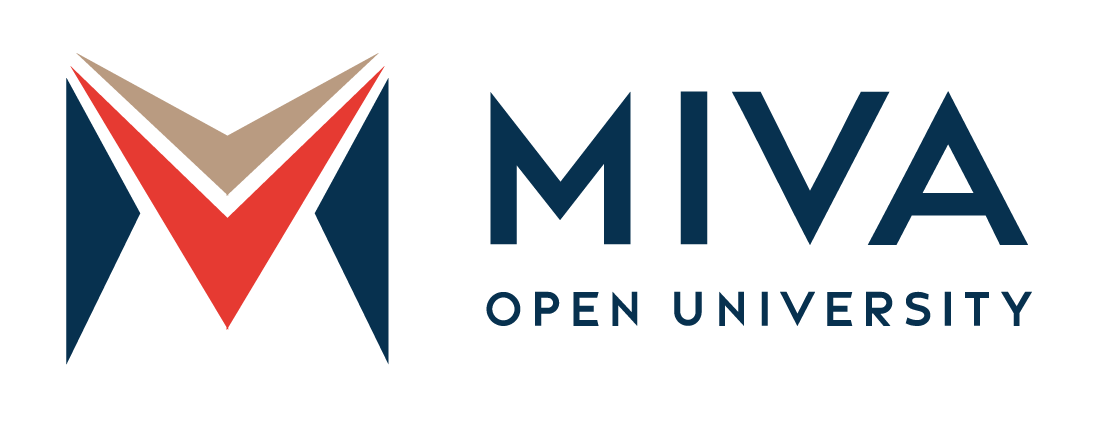In alignment with its mission to foster intellectual growth and interdisciplinary collaboration, Miva Open University is delighted to present the May edition of its University Series Seminar. This distinguished initiative continues to be a key element of our commitment to bridging academic activities across various disciplines. By bringing together scholars, practitioners, and students, the seminar seeks to spark meaningful dialogue, inspire fresh perspectives, and cultivate a dynamic academic environment. As we gather for this month’s session, we proudly reaffirm our dedication to advancing knowledge and promoting scholarly engagement both within and beyond our university community.
For May 2025, here are the details of the discourse:
- Date: May30th, 2025
- Time: 4:00 PM (WAT)
- Host: Prof. Tayo Arulogun, Vice Chancellor, Miva Open University
- Speaker: Abraham Nwankwo, Ph.D (Former Director-General, Debt Management Office, 2007-2017 & Professor of Practice, Department of Economics, Miva Open University)
- Topic: Using Data-Based Instrument to Detect and Control Abuse of Competent Access to Public Debt Markets (A Case Study of Nigeria: 2000 – 2023).
- Registration Link: https://tinyurl.com/MivaDiscourseReg
Here are a few things to expect in this academic discourse:
- Definition of Key Concepts: Clarification of core terms such as “data-based instrument,” “competent access,” and “abuse” within the context of public debt. This section will set the foundation by distinguishing between responsible borrowing practices and actions that constitute misuse or overreach in accessing debt markets.
- Data Analysis from 2000–2023: A comprehensive examination of Nigeria’s public debt trends over the past two decades, including shifts in external and domestic borrowing, debt-to-GDP ratios, and fiscal policies under various administrations. The analysis will highlight key inflection points and potential signs of systemic or political misuse of debt instruments.
- Indicators of Abuse in Debt Market Access: Identification and discussion of quantifiable red flags that suggest potential abuse, such as irregular borrowing patterns, rapid debt accumulation, or deviations from fiscal responsibility legislation. This section will propose metrics and thresholds for monitoring and evaluation.
- Detection and Control Mechanisms Using Data Tools: An exploration of how data analytics, predictive modeling, and real-time monitoring systems can be employed to detect and mitigate abuse. Tools such as Debt Sustainability Analysis (DSA), transparency dashboards, and automated compliance checks will be examined.
- Detection and Control Mechanisms Using Data Tools: An exploration of how data analytics, predictive modeling, and real-time monitoring systems can be employed to detect and mitigate abuse. Tools such as Debt Sustainability Analysis (DSA), transparency dashboards, and automated compliance checks will be examined.
- Contextual Analysis of the Nigerian Experience: Focused case studies on Nigeria’s debt management history, including the 2005 debt relief, borrowing during oil price volatility, and fiscal responses to the COVID-19 pandemic. This section will provide a contextual backdrop for understanding both successful and problematic borrowing practices.
- Policy and Governance Implications: Recommendations for strengthening institutional oversight and governance structures to prevent misuse of debt access. Emphasis will be placed on the role of the Debt Management Office, legislative scrutiny, and public transparency initiatives informed by data-based insights.
- Interdisciplinary Insights on Debt Ethics and Accountability: Incorporation of perspectives from economics, data science, political science, and public policy to understand the ethical dimensions of debt access. This will provide a broader view of how different disciplines contribute to identifying, preventing, and addressing fiscal abuse.
About the Speaker
Abraham E. Nwankwo holds PhD, MSc and BSc degrees in economics, from the University of Nigeria, Nsukka, where he also taught economics. Currently, he is a Professor of Practice in Economics at MIVA Open University, Nigeria’s first private open university. His working experience spans journalism, university lecturing, banking, and public debt management. He was the director-general of Nigeria’s Debt Management Office from 2007 to 2017.
Currently, he is the executive chairman of Abraham Strategies Limited, which offers consultancy services in economy, business and politics. He has executed training and capacity-building assignments in public debt management for several African countries. Nwankwo has authored over fourteen peer-reviewed journal articles. He has also published six books, including two in economics, and four in drama, poetry and fiction.


